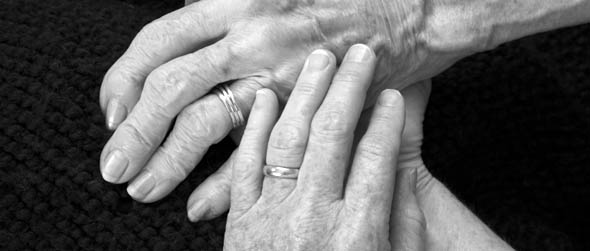patient centred care
Promising depression treatment may soon be available in Ontario
How far along are we in making hospitals more ‘senior friendly’?

Being hospitalized can have dramatic impacts on seniors’ wellness, and time spent in hospital contributes to loss of important functions such as strength and mobility – critical to their independence and wellbeing. Camilla Wong, a geriatrician at St. Michael’s Hospital in Toronto says “hospitalization robs us of the things that are really important for older …
Policy implications for the virtualization of health services

Virtual care (where the provider and patient are separated in space and sometimes in time) is a natural next step in technological innovation for healthcare. Increasing care virtualization has the potential to improve quality of life for patients while increasing the healthcare system’s efficiency but it presents substantial challenges for clinicians and policy makers. The …
The next generation of ePatients

As with any parent whose child has a serious health condition, Amy Gleason is actively involved and ever watchful of her 15-year old daughter, Morgan, who has a life-threatening autoimmune condition called Juvenile Myositis. Amy and I are ePatients – the ‘e’ includes: being engaged, empowered, and most always incorporates gathering information and, often as …
When quality trumps service, patients lose out

The Ontario government deserves applause for tackling global funding for hospitals. “Global budgets provide[d] little incentive for hospitals to focus on efficiency, innovation, improving access, coordinating care across facilities and sectors or improving quality.” In 2012, the Ontario Ministry of Health announced its commitment to patient-based funding. It promised to deliver patients: • Shorter wait …
Rethinking health outcomes in the era of multiple concurrent chronic conditions

Modern health care is very much concerned with outcomes. The language of outcomes is common in policy development, clinical work, and research. For example, Health Quality Ontario states that the overall quality aims are: Better outcomes, better experience, better value for money. In the context of clinical care, outcomes are broadly considered to be the …
How can we improve doctor and patient accountability in Ontario?

To get better quality, timely health care, patients and providers must continue to find ways to make a patient’s regular family doctor the customary first option for non-emergency care needs. As it stands, both parties could be doing more to strengthen the patient-doctor relationship, and financial incentives on providers alone likely won’t be sufficient. Because …
A small step towards a health literate Canada

It was late at night and Leanne (names changed) realized her 2 year old daughter, Meaghan, had a fever after she had been crying through the night. Leanne reached for the infant Tylenol but realized she wasn’t sure whether how much to give Meaghan, who was lighter than most kids her age. Leanne decided to …
Cancer surgery: Ontario does not end at London

I am writing this piece as a Windsor native and current fourth-year medical student at the SchulichSchool of Medicine & Dentistry in London. Over the last week, I have read with concern the Wynne government’s decision to move all thoracic (esophageal and lung) cancer surgery care out of Windsor. The government declares it is centralizing …
Why do personal items go missing in nursing homes?

I am addressing this letter to all the caretakers and families in Canada who have family members residing in nursing homes. I want to know if the situations that we are encountering are widespread and if there is anything that we can do to change policies and procedures to help alleviate the problem. My mother …
Why does my mother have to share a hospital room with the opposite sex?
Will Dr. Low’s legacy be lost in our culture of fear?

Dr. Donald Low has directly impacted the lives of Canadians, first as a respected microbiologist who eased our concerns during the SARS crisis of 2003. Now, ten years later, he’s still influencing our views on public health, but the focus of this discussion is on what, morally speaking, we owe each other at the end …
Computers vs. patients

If you’re a medical intern (a new doctor in their first year of additional training after medical school), most of what you need to do your job can be pulled off a computer screen: Blood test results. Paged messages. Orders to start a medication. All but, of course, how sick a patient is. How he …
Patient centered care means something different to all

Patient centered healthcare is a term we are hearing more often, and depending on the audience – health professional, policy maker or patient – it appears to have a different meaning. Who is involved in this dialogue and just who are they talking to? If we are ever to achieve true patient centered care, we …
Fewer hospital staff on weekends puts some patients at risk

In the modern economy, many industries, such as aviation, retail and manufacturing, no longer slow down over weekends. Yet hospitals have mostly resisted this trend, even though demand for many forms of health care is no less on weekends than on weekdays. While most hospitals are open every day of the week, many operate with …
Sharing difficult decisions

Last week, Lisa Rosenbaum wrote in a New Yorker blog entry about a topic dear to my heart: shared decision making (SDM). SDM refers to doctors empowering patients to make medical decisions based on their values and preferences when there is more than one reasonable path. Many researchers have found that shared decision making (with the help of …
Cutting through the hype – will a “medical tricorder” really replace doctors?

The Scanadu Scout is the forerunner in the race to invent the “Medical Tricorder”, the handheld scanner from Star Trek that space-age doctors use to gather data on a patient. This past May, Scanadu put the device up on Indiegogo, a crowdfunding website, asking for $100,000 for its development. The Scanadu Scout is a small …
Providing emotional care for patients in a technology-driven health system

“They made me feel genuinely cared for. They listened, made eye contact with me, conveyed warmth and understanding in their voice and repeated back to me what I was saying.” — Sophia, about her visit to a chronic pain clinic, from a “care moment” prepared by the Patient Experience department of Alberta Health Services. Mounting …
Patient engagement and trench innovation

Over the past couple of years I have become engrossed in a relatively new kid on the health block: Patient Engagement. With Patient Engagement, the hope is that patients — long seen as merely passive receivers of care — may actually have something to OFFER the health care system beyond being a human pin-cushion and consenting to any treatment thrust their way. …